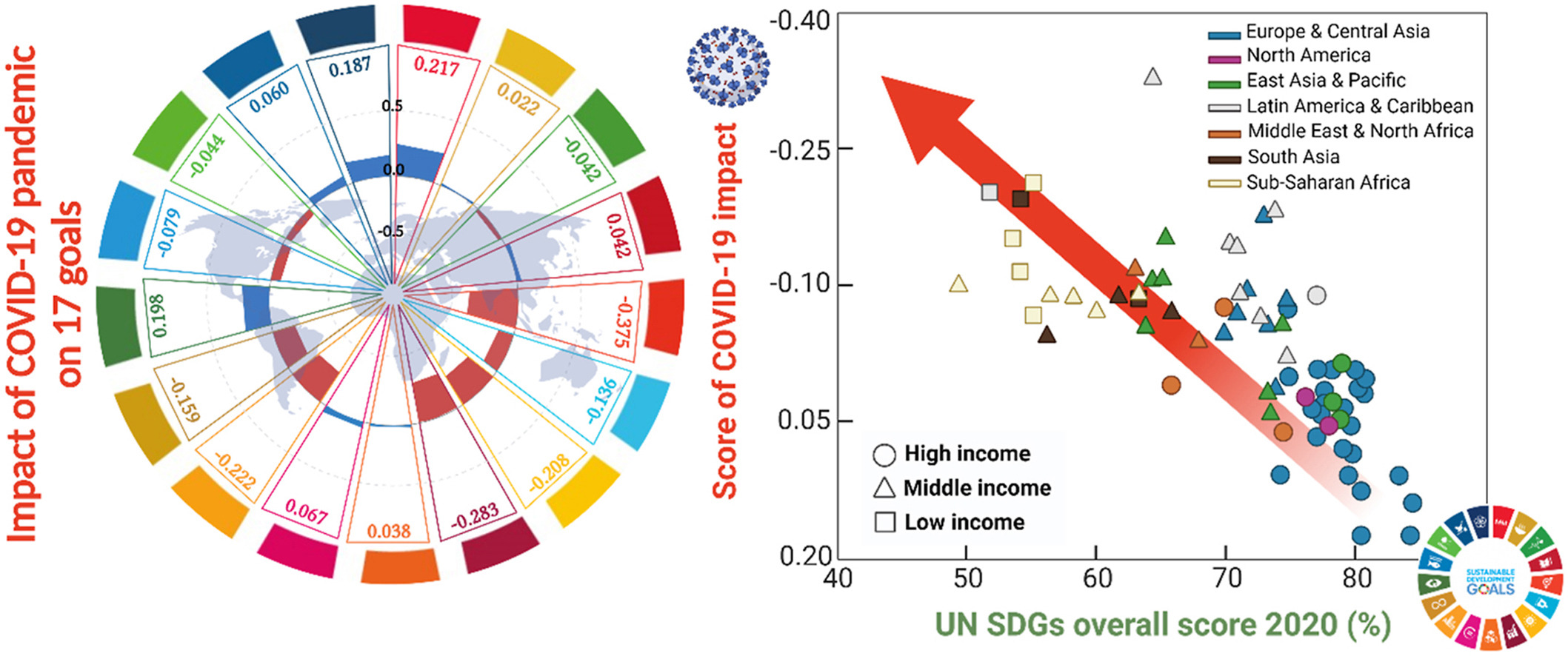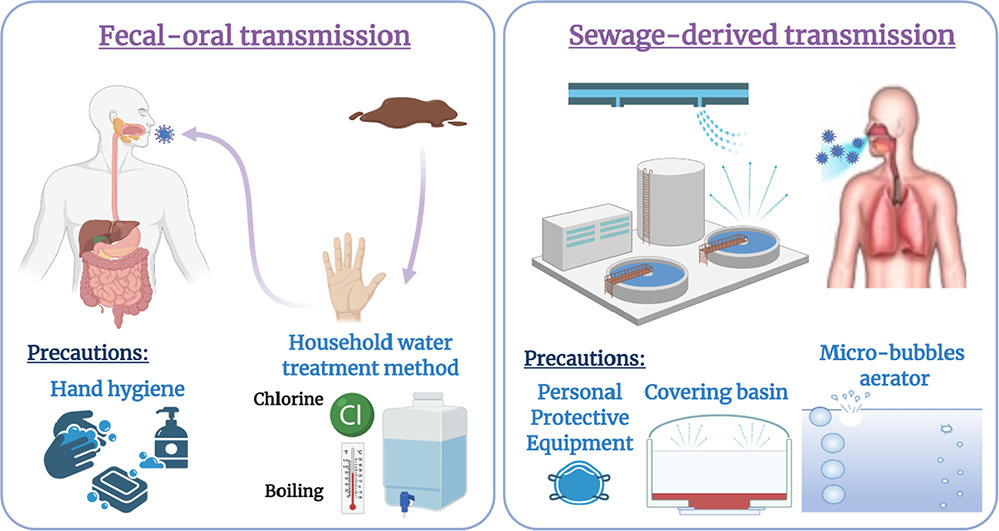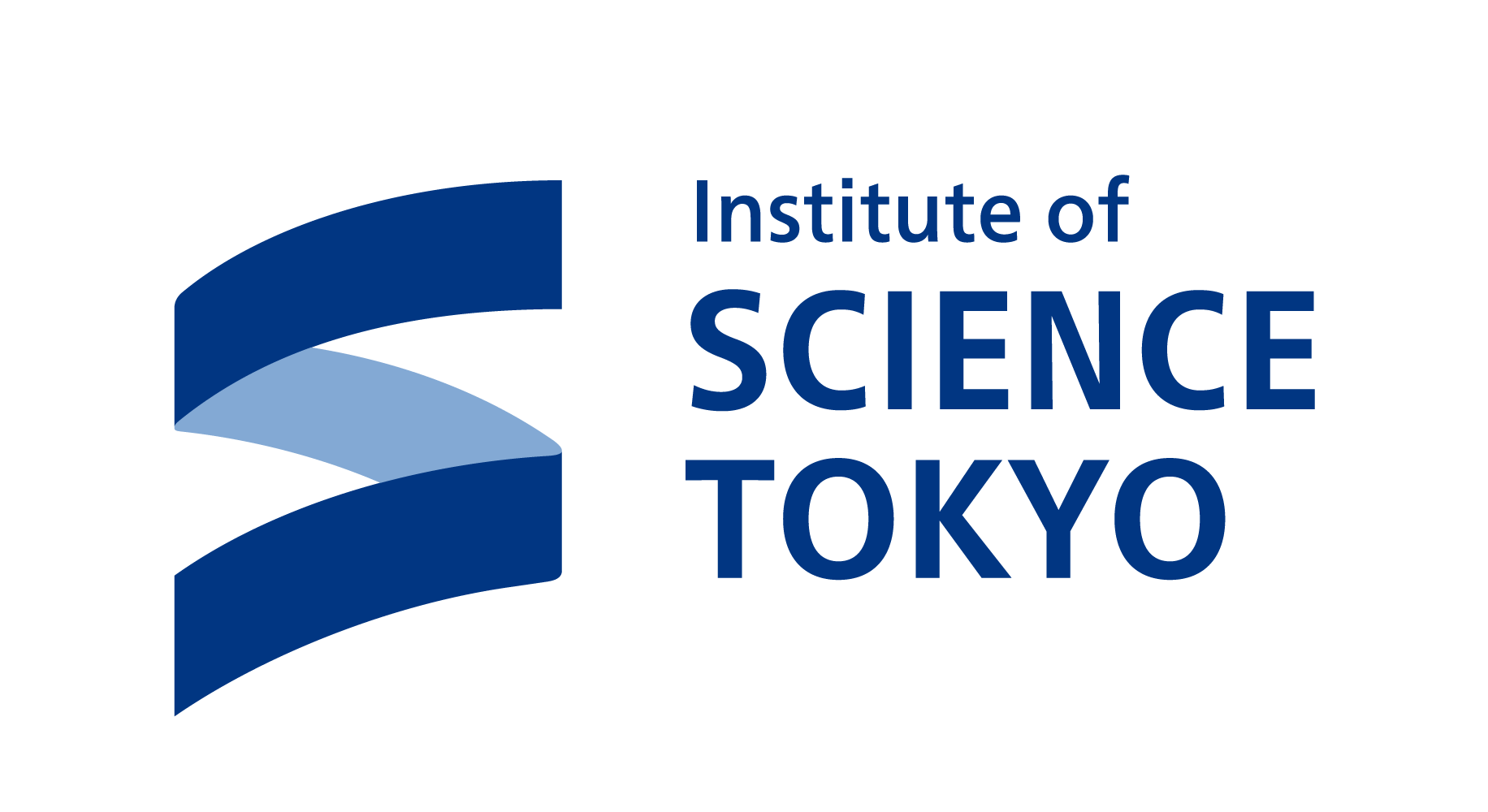
新型コロナウイルス感染拡大(COVID-19)がSDGsの進捗に及ぼす影響評価 / Assessment of the impact of the spread of new coronavirus (COVID-19) on the SDGs progress
【COVID-19が持続可能な開発目標SDGsに与える影響:持続可能な社会の構築が社会のレジリエンス向上につながる / Impact of COVID-19 on the Sustainable Development Goals SDGs: Building a sustainable society leads to increased social resilience】
東工大ニュースより引用
東京工業大学 環境・社会理工学院 土木・環境工学系の藤井学准教授らの研究チームは、新型コロナウイルス感染症(COVID‑19)の世界的大流行(パンデミック)と持続可能な開発目標(SDGs: Sustainable Development Goals)の達成度の間にある相関を、世界規模で定量的に評価した。2020年4月から2021年2月にかけて、72ヵ国において収集した65の指標を用いて、17のSDG目標全てにわたりCOVID-19が与えた影響度(インパクトスコア)を算定した結果、ジェンダー平等(目標5)、安価でクリーンなエネルギー(目標7)、ディーセントワークと経済成長(目標8)、持続可能な都市とコミュニティ(目標11)、責任ある消費と生産(目標12)に対して、対象国の3分の2以上の国で負の影響が算出された。所得水準の低い国ほど負の影響を受ける結果が示され(例えば、サハラ以南のアフリカでは13の目標で負の影響が算出された)、目標5と8では所得に限らずほぼ全ての国で負の影響が示された。また、本研究で算定したCOVID-19による影響度と国連が報告している各国のSDGs総合得点の間には強い負の相関が見られたことから、SDGsの推進による持続可能な社会の構築がパンデミックに対する社会のレジリエンス向上に重要であることが示唆された。このように、本研究で示すような定量かつエビデンスに基づいた研究アプローチならびにそれに基づく透明性の高い政策立案・実施、ガバナンスが持続可能な社会への移行には必要不可欠であると考えられる。本研究成果は、東京工業大学 環境・社会理工学院 土木・環境工学系の鼎信次郎教授、Mohamed Elsamadony研究員、ライプニッツ農業景観研究センターの梁政寛教授、スウェーデン王立工科大学のFrancesco Fuso Nerini准教授、上海大学の柿沼薫准教授らによって行われ、8月27日付の「Journal of Cleaner Production」にオンライン掲載された。
A research team led by Associate Professor Manabu Fujii of the Department of Civil and Environmental Engineering, School of Environment and Society, Tokyo Institute of Technology, has quantitatively assessed the correlation between the global pandemic of novel coronavirus infection (COVID-19) and the achievement of the Sustainable Development Goals (SDGs). Using 65 indicators collected in 72 countries between April 2020 and February 2021, the team calculated the impact of COVID-19 across all 17 SDG targets and found that negative impacts were calculated in more than two-thirds of the countries covered, and negative impacts on gender equality(Goal 5), affordable and clean energy(Goal 7), decent work and economic growth(Goal 8), sustainable cities and communities(Goal 11), and responsible consumption and production (Goal 12). The results showed that countries with lower income levels were more negatively affected, and for Goals 5 and 8, negative impacts were shown for almost all countries, regardless of income. In addition, a strong negative correlation was observed between the impact calculated in this study using COVID-19 and the overall SDG scores for each country reported by the United Nations, suggesting that building a sustainable society through the promotion of the SDGs is important for improving the resilience of society against pandemics. Thus, quantitative and evidence-based research approaches such as those presented in this study, as well as transparent policy planning, implementation, and governance based on such approaches, are considered essential for the transition to a sustainable society.
COVID-19の世界的大流行が17の目標に及ぼした影響度 / Degree of impact of the COVID-19 global pandemic on 17 goals (Figures from Elsamadony et al 2022)

汚染された人糞や下水からのウイルス伝播の可能性: SARS-CoV-2への影響 / Possible transmission of viruses from contaminated human feces and sewage: Implications for SARS-CoV-2 (Figure from Elsamadony et al., 2021)

関連論文 / references

